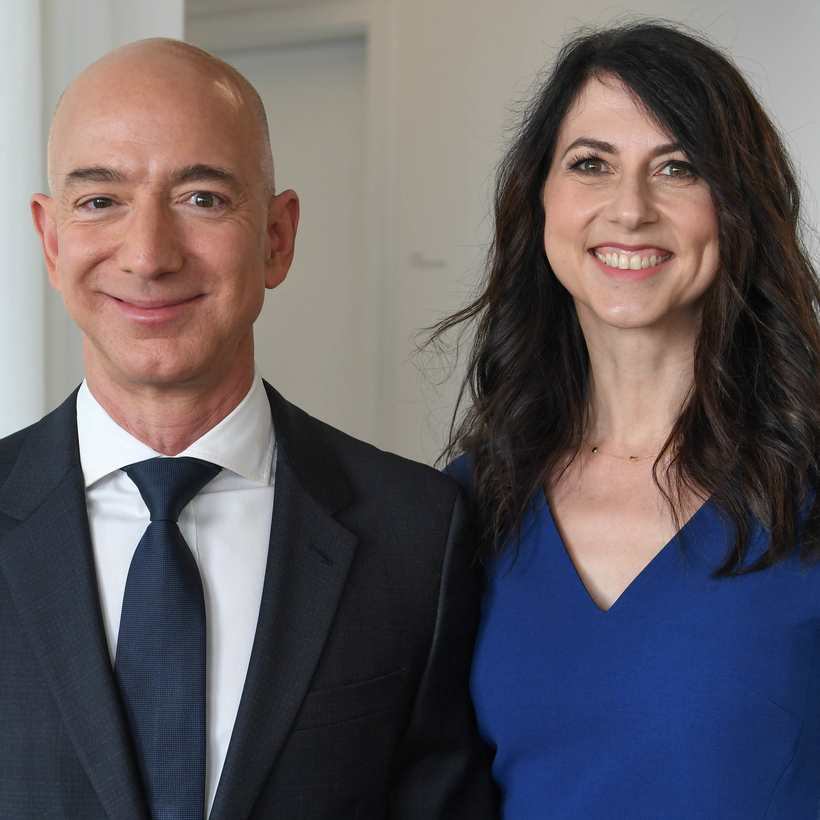How much money is too much money? MacKenzie Scott may have the answer.
The ex-wife of the Amazon founder Jeff Bezos, who according to Forbes is the 21st richest person on the planet with a net worth of about $60 billion, pledged to give away her fortune “until the safe is empty”.
But thanks to the soaring stock price of the e-commerce and Web services giant, Scott, a novelist, has discovered that fulfilling that promise without generating controversy is more of a challenge than expected. She received a 4 percent stake in Amazon after her 2019 divorce and its value has roughly doubled during the pandemic, swelling her already astronomical wealth even as she continues throwing cash at charitable causes.
While Bezos makes headlines with his self-funded space-faring, Scott’s ambitions have proved more down to earth.
She gave $8.6 billion in the 12 months to June, an enormous sum that has proved transformational for those lucky enough to benefit.
The methodology of how Scott, 51, decides whom to bless with her riches remains a mystery, however, as there is no formal application process.
While Bezos makes headlines with his self-funded space-faring, Scott’s ambitions have proved more down to earth.
Many of the 786 chosen organizations share a progressive streak and they are often run by women or people of color. They include varied groups ranging from the Alaska Native Heritage Center, which supports the state’s indigenous people, to the Triangle Project, based in Cape Town, which supports LGBT groups.
Non-profits have reported receiving phone calls or emails out of the blue from consultants acting for Scott. After a relatively straightforward process, massive grants are transferred for the recipient to do with as they please.
Scott justifies her hands-off approach by arguing that charity workers on the ground will have a far better idea of what to do with the money than she does.
Scott, who married a Seattle teacher, Dan Jewett, this year following the breakdown of her 25-year marriage to Bezos, has maintained a blog on the Medium Web site and hinted at an ambivalence towards her fortune.
Explaining her charitable motivations, she wrote: “Me, Dan, a constellation of researchers and administrators and advisers — we are all attempting to give away a fortune that was enabled by systems in need of change.”
Philanthropic experts want more transparency. While many applaud her informal interpretation of large-scale giving, which marks a departure from the structured bureaucracy favored by the likes of Bill Gates, there are concerns that there is too little accountability.
“We are all attempting to give away a fortune that was enabled by systems in need of change.”
“Everybody seems to generally like what she’s doing, but the way she’s doing it, there’s little transparency,” David Callahan, founder of the Web site Inside Philanthropy, said. “We don’t know anything about the process, how these decisions are made. There’s no way to get in touch or apply for money. If she gives away millions of dollars and creates problems where things go wrong, there’s nobody to complain to, there’s nothing to do about it.”
Maribel Morey, an expert on American philanthropy and the founding executive director of the Miami Institute for the Social Sciences, said of Scott: “If she and her team provided more clarity in not just who was selected but why they were selected, and how it fits into their general vision for philanthropy, that would give some of the non-profits who are very anxious to receive funding a better sense of where they stand.
“Just because an organization has more formal structures like a board and staff, doesn’t necessarily mean they’re more transparent, beyond an annual report. I would actually call for greater transparency and not necessarily more onerous application processes.”
For the lucky recipients, Scott’s money can be a game-changer. Cal Poly Pomona, a university in Southern California, received $40 million, its largest donation from a private individual.
“We don’t know anything about the process, how these decisions are made. There’s no way to get in touch or apply for money.”
Most of the 29,000 students come from a Hispanic background, a large proportion are from lower-income families and almost half are the first in their family to attend university, said Dan Montplaisir, its vice-president of advancement. He said Scott and her representatives were “appreciative” of the potentially life-changing opportunities the university offered its students.
A consultant working for Scott emailed the university in May and requested a private meeting with its president. Cal Poly was asked not to share details until the gift was made public. About ten weeks later the money was transferred with no strings attached. The university is now deciding what to spend the money on.
Montplaisir said Scott specified there was no need to add her name to a building on campus, another break from the norm of wealthy benefactors, many of whom expect a prominent and permanent tribute to their generosity.
He added: “She is empowering the people closest to the students and closest to the challenges that our students have.”
Scott’s unconventional approach to spreading her wealth may prove influential far beyond the organizations that directly benefit from her benevolence, Callahan believes. While she may struggle to completely empty the safe, her methods could inspire other billionaires into trying new ways of sharing their fortunes.
Callahan said: “Remember, these billionaires, they have a lot of money to get rid of before they die. It’s hard to give away a lot of money. You just look at the Forbes 400 list and there’s a lot of people worth more than $50 billion and you’re going to have to do something with all that money. And MacKenzie Scott has shown them a way to get rid of it fast.”

